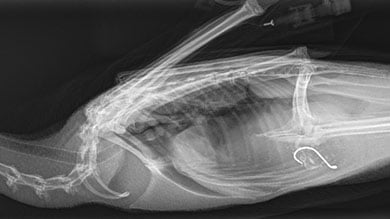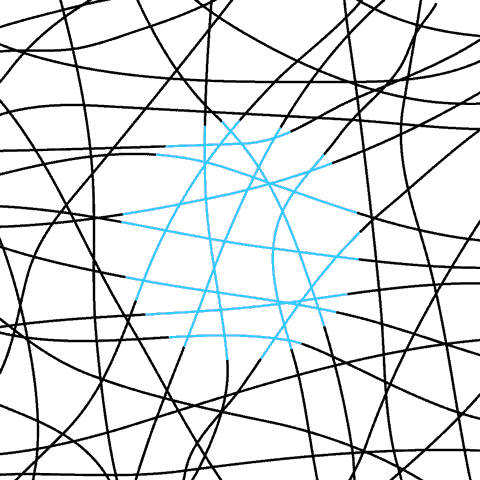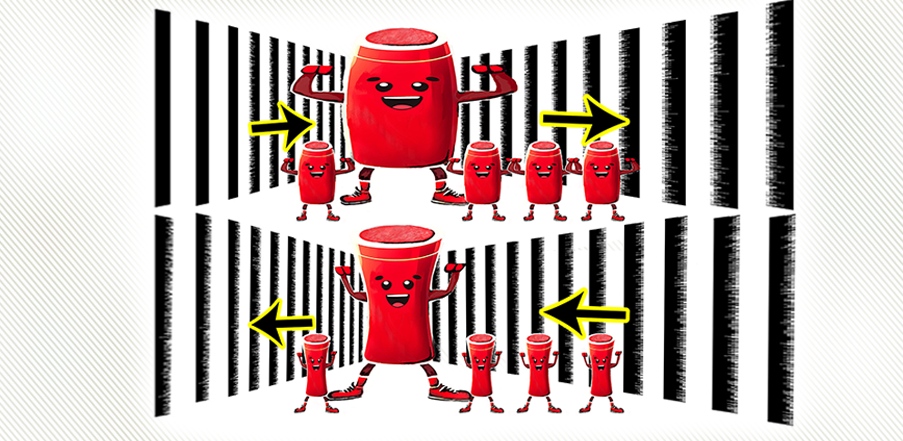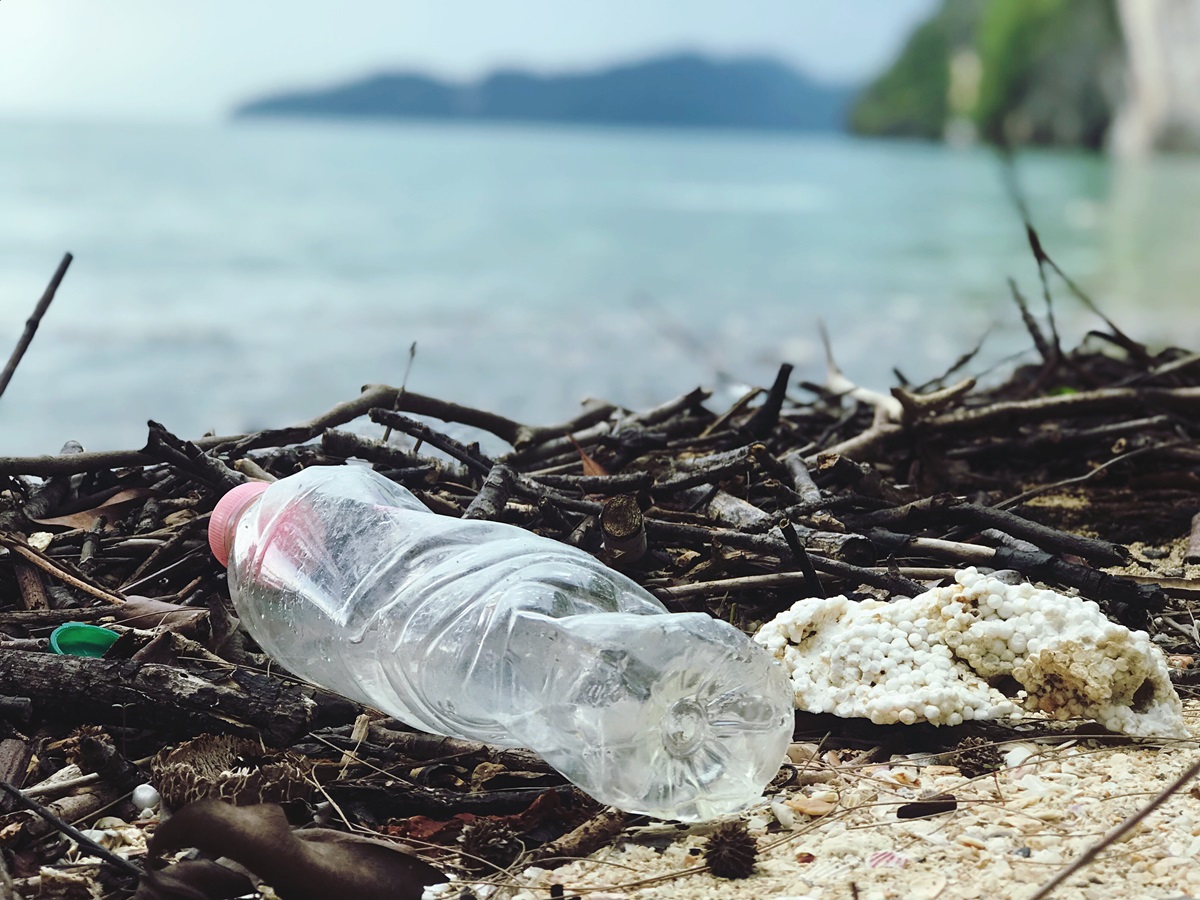The incident is a reminder of the importance of being careful with fishhooks or other fishing equipment, which can be eaten by or entangle protected native animals.
Pūteketeke, also known as kāmana, recently made headlines around the world when the species was voted Bird of the Century after TV host John Oliver’s self-described “alarmingly aggressive” campaign for the species.
This adult female pūteketeke was picked up in Twizel and taken to the Wildlife Hospital Dunedin for stomach surgery in December. She has been recovering there since.
Wildlife Hospital Dunedin Director and Senior Wildlife Veterinarian Dr Lisa Argilla says removing foreign bodies, in particular fishhooks, is a major procedure which involves abdominal surgery to access the stomach to remove the item.

Pūteketeke with fishhook x-ray
Image: Wildlife Hospital Dunedin
Fishhooks also risk perforating the stomach and causing peritonitis (serious infection around the internal organs) because of how sharp they are.
“Luckily this was not the case in this grebe and the hook was successfully removed without any complications. Recovery time is long as this is major surgery so lots of intensive care was needed to help her recover.
“Over the past few weeks her feathers have regrown over the area where the surgery was undertaken, and she has been spending all day in the rehab pool swimming and diving and doing normal grebe things. We are so excited about the successful outcome for this stunning bird.
DOC Twizel Senior Biodiversity Ranger Dean Nelson says the pūteketeke was successfully released near Lake Ruataniwha on Friday.
“There’s thought to be fewer than 1000 pūtekeke in Aotearoa so it’s fantastic this one has made a full recovery and has been released back into the wild. But this bird was lucky because swallowing fishing gear can be fatal in many cases.
“We’re asking people to try and help prevent incidents like this happening in the first place. Fishers are reminded to fish tidily and not leave hooks, line or other equipment lying around.
“If you do see a native bird that’s clearly injured or in a dangerous situation, call the DOC hotline 0800 DOC HOT (0800 362 468) to report it and for advice on what to do.”
Dr Lisa Argilla says Wildlife Hospital Dunedin echoes DOC call to ask people to help prevent incidents like this occurring, as we have seen more poor outcomes than good when it comes to fishhook ingestion.
Dean Nelson thanked the Wildlife Hospital Dunedin staff for their fantastic job with the animal’s tricky surgery and recovery, and for their important work with a range of threatened native species including kakī and hoiho.
Pūteketeke is a diving bird found on some South Island lakes, particularly in the Canterbury and Otago high country. Some birds form flocks on coastal lakes such as Lake Forsyth during winter. The subspecies is also found in Australia.
A distinctive feature of pūteketeke is their floating nests which are attached to branches or underwater vegetation. They are also notable for their elaborate courtship displays which include head shaking to show off their crests, gathering water weed to offer to the partner, and rising out of the water come together chest-to-chest.
The birds form long-term pairings and share in incubating and chick rearing duties. Young chicks are carried on their parents back. They mostly eat fish, and some aquatic invertebrates. They make a growling or grunting call.








